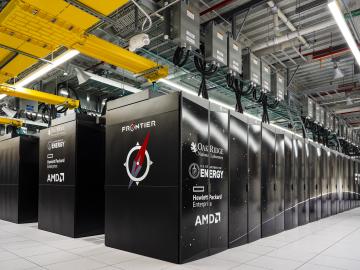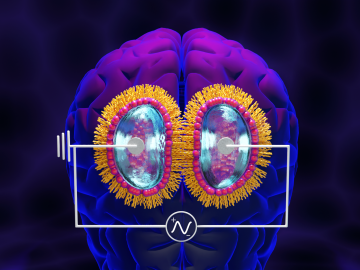Filter News
Area of Research
News Topics
- (-) Artificial Intelligence (2)
- (-) Frontier (1)
- 3-D Printing/Advanced Manufacturing (3)
- Big Data (1)
- Bioenergy (3)
- Biology (4)
- Biomedical (4)
- Biotechnology (1)
- Climate Change (1)
- Composites (1)
- Computer Science (7)
- Coronavirus (5)
- Cybersecurity (2)
- Decarbonization (1)
- Energy Storage (3)
- Environment (3)
- Fusion (1)
- High-Performance Computing (1)
- Materials (6)
- Materials Science (14)
- Microscopy (1)
- Nanotechnology (6)
- National Security (1)
- Neutron Science (40)
- Nuclear Energy (1)
- Physics (7)
- Quantum Science (5)
- Security (1)
- Space Exploration (1)
- Summit (4)
- Sustainable Energy (2)
- Transportation (2)
Media Contacts

ORNL is home to the world's fastest exascale supercomputer, Frontier, which was built in part to facilitate energy-efficient and scalable AI-based algorithms and simulations.

Paul Langan will join ORNL in the spring as associate laboratory director for the Biological and Environmental Systems Science Directorate.

While studying how bio-inspired materials might inform the design of next-generation computers, scientists at ORNL achieved a first-of-its-kind result that could have big implications for both edge computing and human health.




